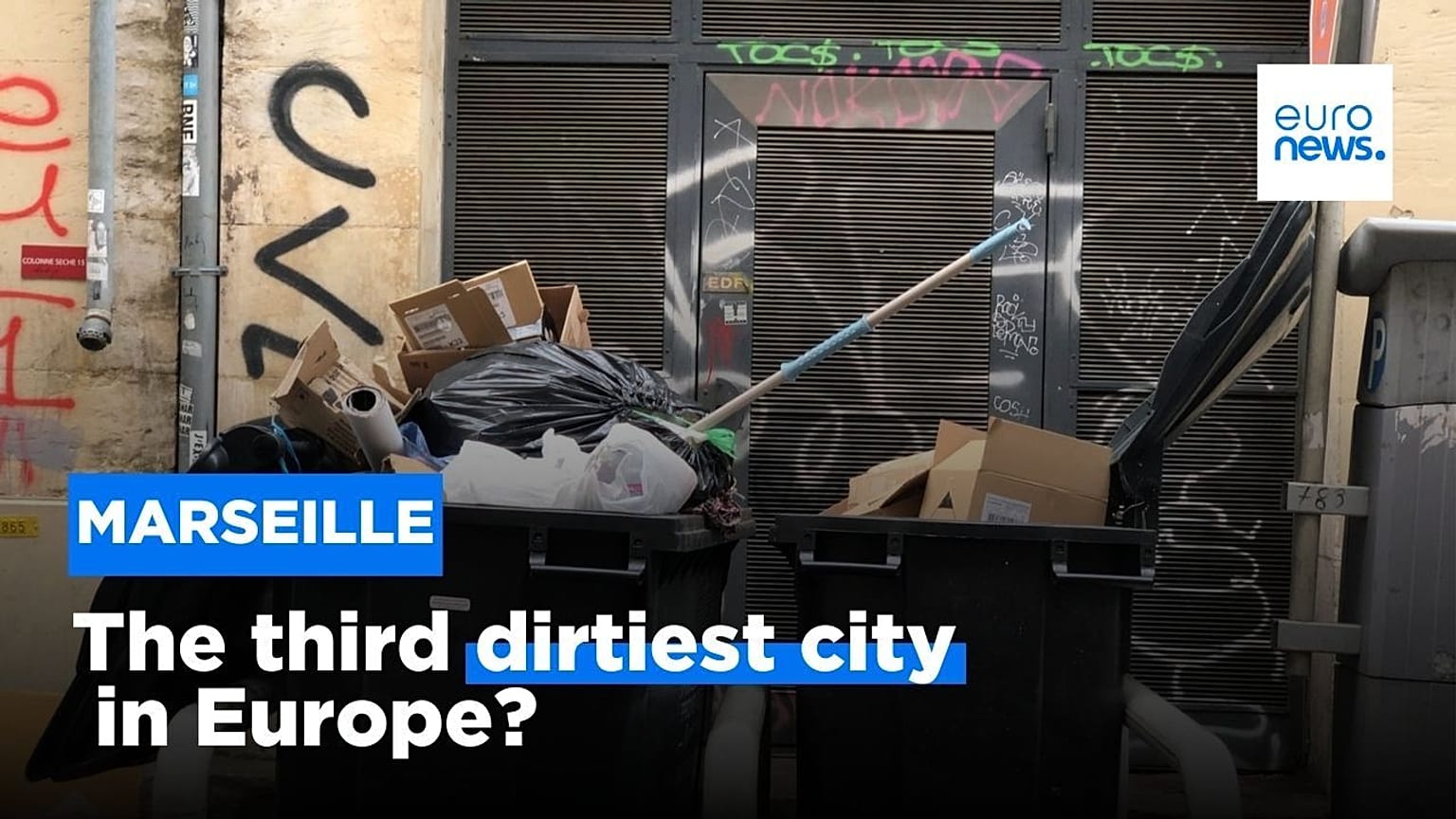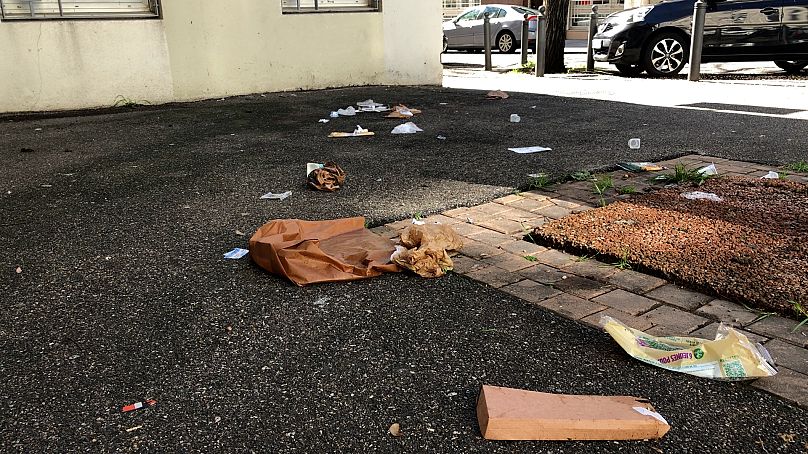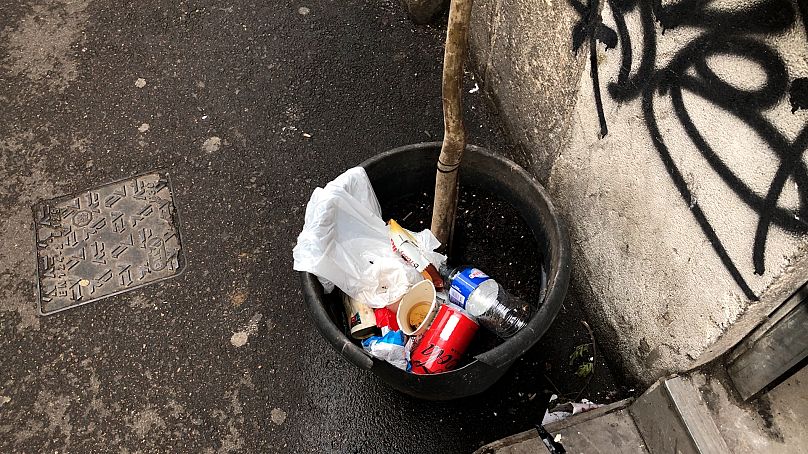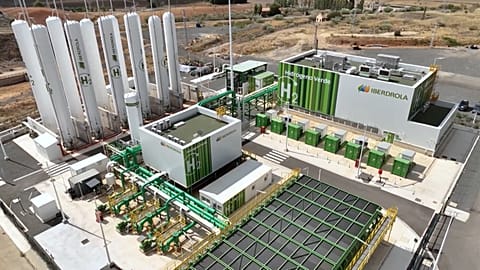Rome, Palermo and Marseille are the three dirtiest cities in Europe, according to a report from the European Commission.
“I no longer recognize my city,” complains Genevieve. The Marseille native is sorry to see how dirty France’s second city has become. “People litter everywhere, on the roads, the pavement… It has never been a clean city but now we’re breaking records,” she says.
 ADVERTISEMENT
ADVERTISEMENT
 ADVERTISEMENT
ADVERTISEMENT
The French Mediterranean port took the bronze medal of the dirtiest city in Europe, according to a report from the European Commission published early 2024. Palermo reached the top spot and Rome earned the silver medal among 83 cities surveyed.
In Marseille, only 22 per cent of people are happy about the cleanliness of their city.
Euronews Green went to France's second city to find out whether the southern port deserves its reputation and who is to blame for the dirt.
‘The city is disgusting’
The feeling was unanimous, shared by a dozen people we spoke with.
“The street where I live is an open-air urinal,” notes Eric, a retired architect living in Marseille. “There are a lot of rats, it’s so dirty here,” says Miloid, another local resident. “And there’s poop everywhere,” fellow Marseillais Michelle adds.
Marseille’s relationship with dirt is a faithful, never-ending one. Its strong mistral winds have posed a long standing issue for the city’s cleanliness. Inhabitants feel that Marseille does not have adequate equipment to face this challenge.
“The bins are not suitable, because rubbish flies out all over the city when it’s windy,” Veronique tells Euronews Green.
In 2022, 601 kg of waste per inhabitant was generated. That’s above the European average of 513 kg, increasing pressure on public services.
“Collection is inadequate given the amount of waste generated,” says local Sarah Bourgeois. “The city is disgusting,” she adds.
Overflowing bins not only lead to cluttered streets but they also pose health hazards.
“You run the risk of accidents with people slipping on waste and bulky items,” says Sarah.
Marseille is known for its garbage collector strikes, leading to piles of accumulated waste littering the streets. Over the past 40 years, some thirty ‘bin conflicts’ have left their mark on the lives of the residents.
But officials blame individual behaviour. “Strikes have nothing to do with what’s going on. The biggest problem we have is incivilities and breaches of the environmental code,” says Roland Mouren, Vice President of the Marseille metropolitan area, in charge of waste management.
“Binmen have told me that when they collect, by the time they get back and turn around, they find just as much rubbish as when they had started,” he adds.
The Vice President denies public services’ failure. In the vibrant neighbourhood of Noailles, a five-minute walk from the old port, cleaners come five times a day, according to Mouren. Despite this, at the time of our report, piles of waste had accumulated in the street.
But citizens are not the only ones responsible. “We have collected mountains of waste, thousands of tonnes left by professionals from the construction industry,” explains Mouren. “Their behaviour is irresponsible and poses a real waste management problem for us.”
Citizens are driving change in Marseille
To drive change, Sarah Bourgeois decided to take the matter in her own hands. The estate agent and yoga teacher founded a collective called ‘Poubelle la vie’ (‘trash life’), a word play on the famous French series ‘Plus belle la vie’.
Coming back to the French port after a trip to Japan in 2017, she asked on her Facebook account, “Am I the only one feeling like I’m living in a dustbin?”. She received a flood of responses, leading her to create the collective, with 800 people joining on the first day. Today, the group boasts 20,000 members. “It shows how much people are fed up,” says Sarah.
The collective produced a report with 10 proposals to make Marseille a cleaner city.
Among them were improving waste management with solar smart waste bins that monitor the trash fill level, teaching young people about the importance of litter prevention, and encouraging recycling by installing composters.
Sarah claims the report was presented to every politician running for the 2020 municipal elections. But she feels that their voices have not been heard by the people in power. “The report has not been taken up. We’re not being listened to at the moment.”
Can Marseille become cleaner? Waste collection is being reorganised to achieve this goal, with 2,600 food waste bins being installed and the region’s 58 waste collection centres modernised.
These solutions are starting to bear fruit. According to the latest data, household waste decreased significantly between 2021 and 2022, with around 40 kg less per inhabitant. By 2030, Marseille aims to reduce its production of household waste by 15 per cent.



















